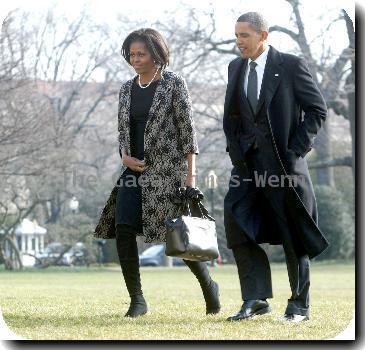Rights complaints persist as US military frees Afghan detainees from Bagram to local leaders
By Kay Johnson, APThursday, March 11, 2010
Complaints persist as US frees Afghan detainees
CAMP DUBS, Afghanistan — The Pashtun tribal leaders picked at the chocolate cake and fruit laid out for them at the conference table. Politely, they listened to speeches touting a new program to release detainees from Afghanistan’s largest U.S.-run military prison if community leaders vouch for them.
Then, one of the elders from the eastern province of Logar stood up and started asking questions.
Why were the four men who were being released detained for months at the facility outside Bagram Air Field with no evidence? Why do American soldiers still raid homes without consulting local leaders?
“The Afghan people are hearing a lot of talk,” said Walir Wakil, a community leader who wore a yellow turban and a suit jacket over his traditional robes. Where, he asked, is the proof of President Barack Obama’s stated policy of foreign troops working more closely with local government?
The ceremony for a new community-release program established for the 600 suspected Taliban supporters held at Bagram prison led to pointed criticism that cut to the heart of the dilemma facing the NATO-led mission’s strategy in Afghanistan.
Since U.S. Gen. Stanley McChrystal took over as the military alliance’s commander last year, he’s made it a priority to consult local representatives as part of a counterinsurgency policy to win hearts and minds away from the Taliban insurgency. But often, events held to build goodwill end up airing years’ worth of pent-up grievance — such as during the prisoner release ceremony Wednesday at Camp Dubs, an Afghan army camp on Kabul’s outskirts.
Under a program started in January, local Afghan leaders can petition for and win release of Bagram prisoners not deemed a threat if area chiefs pledge to monitor them for signs they are aiding the insurgency. The policy is part of a transition for the Afghan government to take control of the controversial detention facility within a year.
The Bagram prison is a particularly sensitive issue in Afghanistan, where one of the population’s chief complaints has been foreign troops raiding homes at night and taking people away with little explanation.
Navy Capt. Patrick McCarthy, representing the U.S. military at the Bagram release ceremony, offered no defense of American actions — only a plea for patience that has become familiar in the war’s ninth year.
“We are changing the way we do business so that Afghans and Americans are partners shoulder-to-shoulder,” McCarthy said. “It takes some time to get it all the way correctly.”
The U.S. military has in the past quietly freed Bagram detainees it deems no longer a threat. However, this week’s release was a formal event — billed as a “shura,” the Afghan term for a gathering of elders — involving the provincial governor and dozens of local elders brought in from Logar, the province immediately south of Kabul that is a hotbed of Taliban activity.
One of the men freed Wednesday, Haji Katel, insisted he had been unfairly held.
“We didn’t do anything wrong, and they arrested us,” Katel, 67, said of himself and three other men, in their 30s, who were released.
Katel was greeted like an elder statesman on his release, embraced with deference by the several dozen Logar officials who had signed a petition vouching for his character as a respected village figure who had been rounded up by mistake.
The assembled dignitaries also signed a pledge at the ceremony, taking responsibility that Katel would cause no trouble in the future, a condition he said he’ll have no trouble fulfilling.
“Now I’m free. I don’t care,” Katel said. “I didn’t do anything against the government before and I won’t do anything now.”
Neither Katel nor the U.S. military would discuss the circumstances of his arrest. He said he was not mistreated during his detention, which American officials said lasted less than a year.
Some Bagram detainees have been there for several years without any formal charge or evidence, and the deaths of two Afghan prisoners in 2002 led to prison abuse charges against several American troops. The secrecy under which prisoners have been held and their inability to challenge their detention has drawn condemnations from the U.N. and human rights groups.
The Obama administration has made some changes at the prison. Last year, the Pentagon assigned all detainees a U.S. military official as a personal representative and set up new military review board to hear arguments for release. All the prisoners were moved last year into a new, $60 million facility next to the air field.
“There has been some significant improvement,” said Nora Niland, a human rights expert for the United Nations in Afghanistan. “The type of torture stories we were hearing about a few years ago, no longer exist in terms of Bagram.”
Still, critics say prisoners at Bagram should have more legal rights. Obama’s administration still backs the Bush-era stance that the Bagram detainees — who number 645, according to a list submitted in January in response to a lawsuit by the American Civil Liberties Union — should not be allowed to challenge their indefinite detentions in U.S. courts as Guantanamo prisoners have done, arguing that Afghanistan is an active war zone with special dangers.
More changes are coming for the U.S.-run Afghan prison. Last month, American forces started procedures to turn over responsibility for the facility to the Afghan government, a process a military spokesman says will take about a year.
Afghan President Hamid Karzai has said indefinite detentions are turning ordinary Afghans against U.S. and NATO forces and, by extension, his government. Karzai has called for steps to free Bagram prisoners being held without evidence, raising the possibility for the pace of releases to accelerate next year.
Tags: Afghanistan, Asia, Barack Obama, Camp Dubs, Central Asia, Kabul, North America, United States




